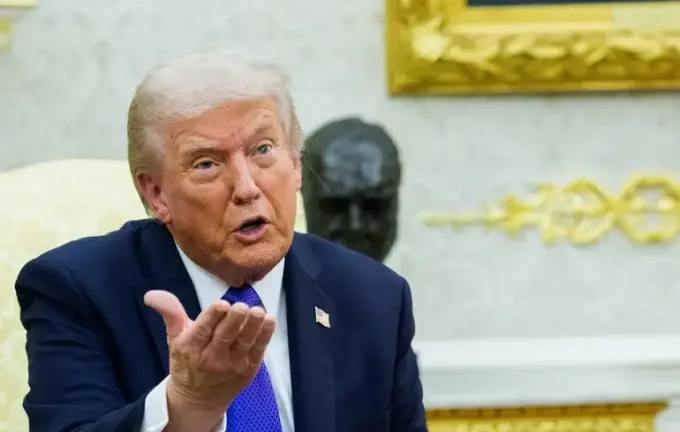Donald Trump open to making concessions with China to ease trade tensions

Former U.S.
President Donald Trump has hinted at the possibility of making concessions to China to soften the escalating trade conflict between the world’s two largest economies.
Reports suggest that Trump indicated he was willing to take steps to stabilize relations, noting the tense situation had reached dramatic levels.
In his remarks, he mentioned that Washington might be ready for certain compromises if Beijing reduces tariffs on American exports.
Currently, tariffs on Chinese goods stand at 157%, which is hard for China to sustain, prompting hopes of mutual agreements that could ease trade tensions.Trump plans to meet with Chinese leader Xi Jinping at the upcoming Asia-Pacific Economic Cooperation summit in South Korea to discuss further trade relations.
He also expressed concern about the potential imposition of additional 100% tariffs if Beijing does not lift restrictions on rare earth exports, which are vital for modern technology.
Trump emphasized the U.S.
desire to reach a comprehensive deal that would resolve these issues.Additionally, Trump raised topics regarding cooperation with Russia, stating that he hopes China can assist in issues related to sanctions against Moscow amid the Ukraine conflict.
He expressed optimism that Beijing could play a constructive role and support stabilization efforts.Another key aspect of his diplomatic agenda is a possible meeting with North Korean leader Kim Jong-un during his Asian tour, aiming to explore cooperation and dialogue opportunities.
The visit includes trade negotiations, which U.S.
officials believe could pave the way for productive discussions and future summits between the leaders.According to U.S.
diplomats, negotiations between the U.S.
and China and with North Korea hold significant potential for reaching comprehensive, results-oriented agreements.
They highlight that this period is crucial for seeking diplomatic solutions to complex regional and global issues, which impact international stability and security.

